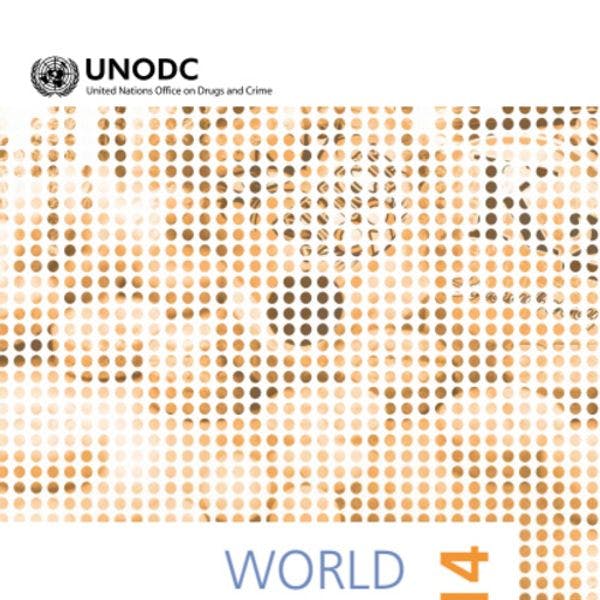UNODC World Drug Report 2014
The World Drug Report 2014 is aimed at helping the international community to address the toll that illicit drug production, trafficking and consumption continues to take on all our societies, by providing a global overview and analysis of developments, based on the best available data.
The report is being published at a key moment in the global debate on the world drug problem. A high-level review of the implementation of the Political Declaration and Plan of Action on International Cooperation towards an Integrated and Balanced Strategy to Counter the World Drug Problem was conducted in March 2014 in Vienna by the Commission on Narcotic Drugs, followed by a regular session of the Commission.
Efforts to date to implement the Political Declaration and Plan of Action have resulted in some considerable successes, including sustainable reductions in illicit drug cultivation through alternative development initiatives and welcome improvements in treatment delivery. There have also undeniably been serious setbacks, however, not least the surge in opium cultivation and production in Afghanistan, the violence associated with the illicit drug trade, and the growing instability of regions, including West and East Africa, that are already vulnerable to trafficking and to rising levels of local production and use of illicit drugs.
Nevertheless, the lessons we have learned are valuable and we have attained a shared understanding of a way forward.
First and foremost, we have learned that sustainable success requires a balanced, cooperative, comprehensive and integrated approach, addressing both supply and demand.
In addition, for the first time the report presents joint estimates by the United Nations Office on Drugs and Crime (UNODC), the World Health Organization, the Joint United Nations Programme on HIV/AIDS (UNAIDS) and the World Bank on the number of people who inject drugs and the number of people who inject drugs and are living with HIV.
The report also addresses another important area, namely the results achieved and the challenges the international community continues to face in controlling precursors.
More broadly, we must continue to enhance international cooperation, including with respect to transparent sharing of data and analysis, to help us better understand the drug problem and address the many challenges, including the related issues of violence and insecurity.
Keep up-to-date with drug policy developments by subscribing to the IDPC Monthly Alert.
Topics
Regions
Related Profiles
- United Nations Office on Drugs and Crime (UNODC)
